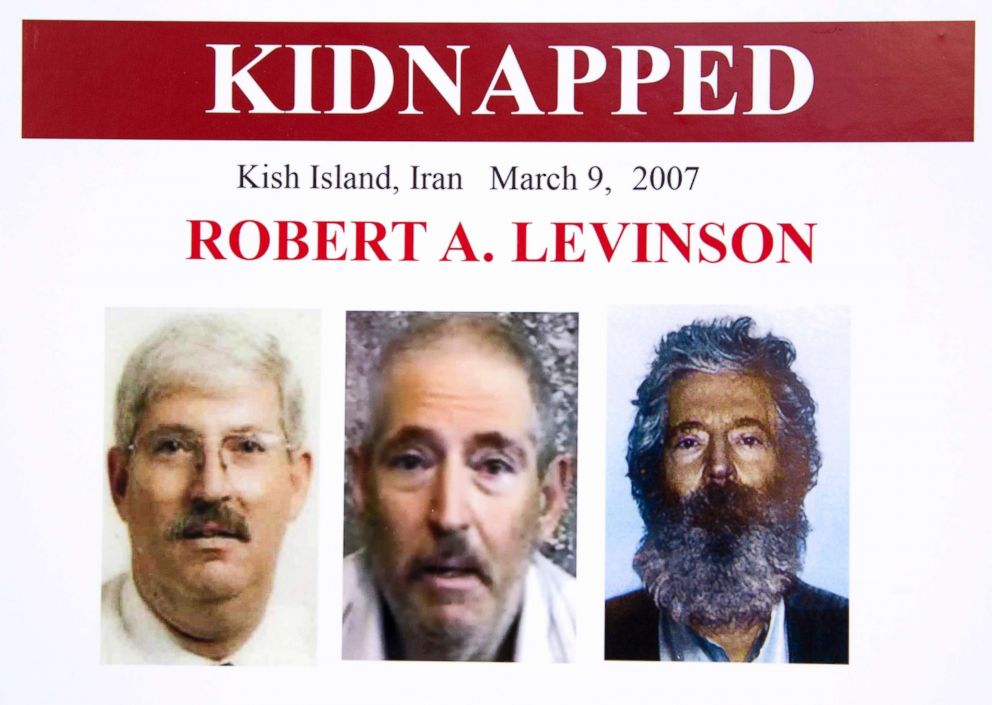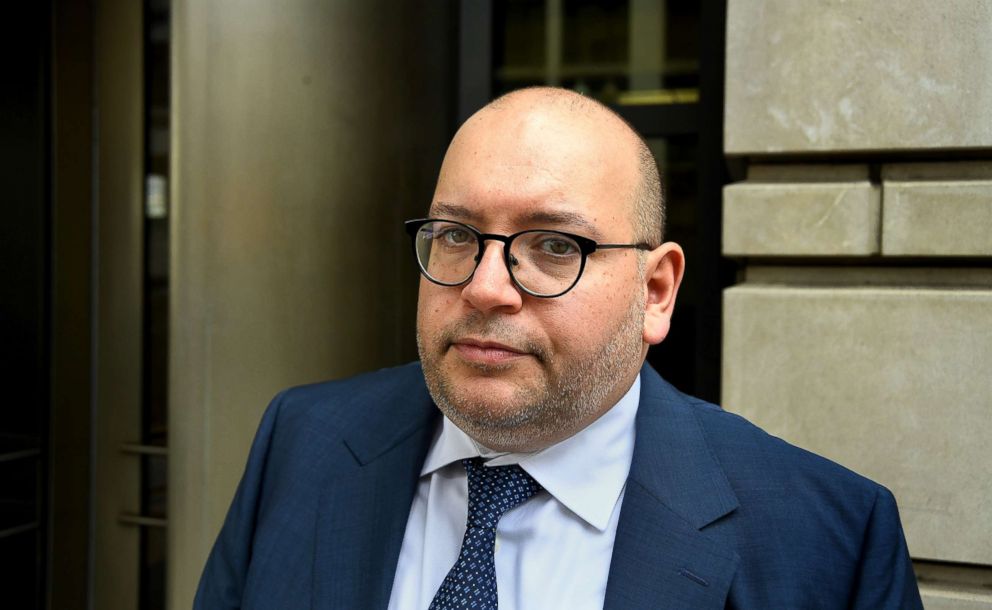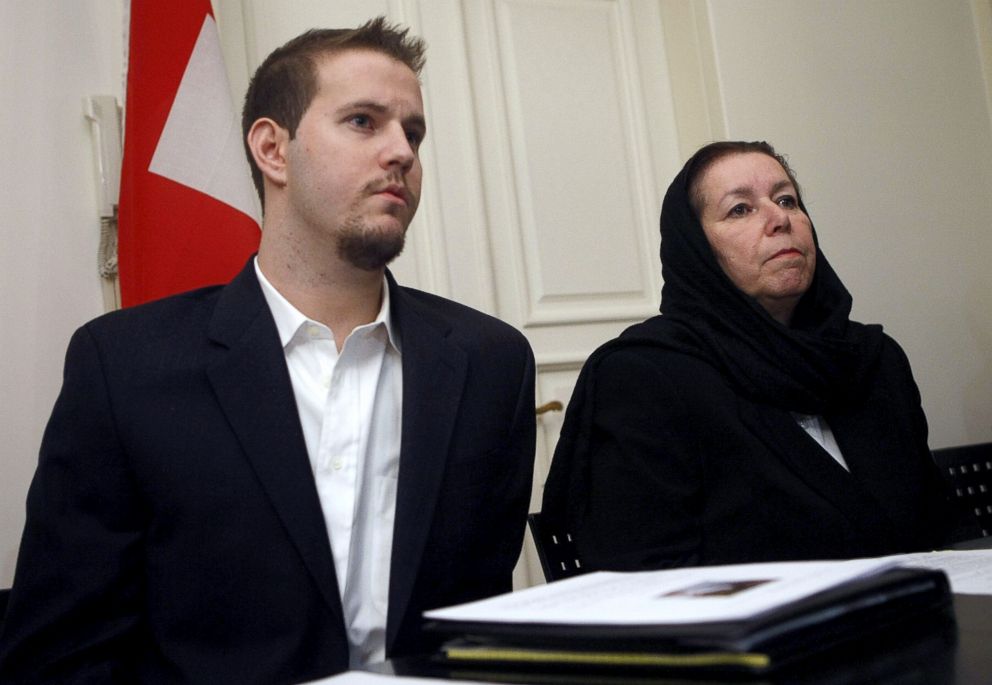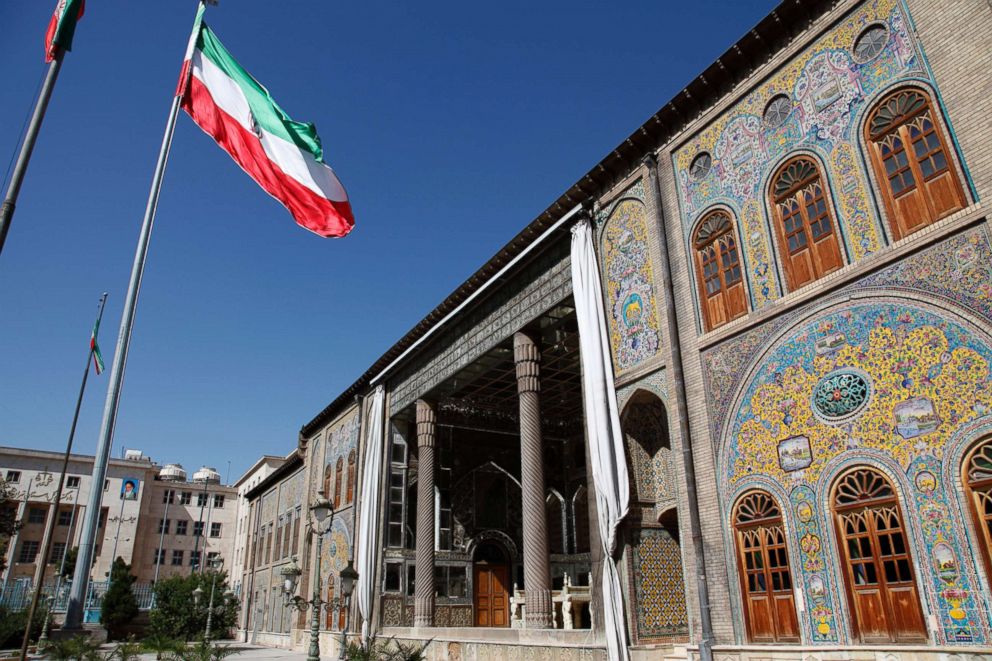New book fuels hope, anger for family of ex-FBI agent abducted in Iran
A new book by a former hostage – and a recent flurry of tips – are giving new hope to the family of retired FBI special agent Robert Levinson that he may still be alive more than a decade after he disappeared in Iran.
Levinson, a veteran agent and specialist in Russian organized crime, disappeared on Iran’s Kish Island in March 2007, while working on a murky CIA contract for intelligence analysts at the agency.
Iranian officials have always denied detaining him, but an intriguing anecdote in a new book by Jason Rezaian, a Washington Post correspondent who was held hostage there for nearly two years, suggests those denials might have been lies, compelling his wife Christine and their children to press the Trump administration to press Tehran for answers.
"President Trump is a deal-maker and we are hoping he will motivate the Iranians to finally resolve this and send our dad home to us," Levinson's daughter Sarah Moriarty told ABC News in an interview.
Trump has not met personally with the Levinson family since taking office, said a source close to the Levinson family who has been involved in the case. But during the 2016 presidential campaign, he pledged to bring home the Americans held as geopolitical bargaining chips by Tehran. Besides Levinson, there are currently four other Americans being held in Iran.

Levinson’s family was shocked that he wasn't released or otherwise accounted for when Rezaian and three other Americans held captive were set free by Tehran in January 2016, as the United States and Iran finalized the terms of the Iran nuclear deal.
Rezaian's new memoir, “Prisoner: My 544 Days in an Iranian Prison – Solitary Confinement, a Sham Trial, High-Stakes Diplomacy, and the Extraordinary Efforts It Took to Get Me Out,” raises the possibility that Levinson’s fate was known to Tehran's ruling mullahs when they set those four American hostages free.
A source that Rezaian’s family had in the office of Iran’s Supreme Leader, who had provided “surprisingly accurate” details about many other matters, informed them that the government of President Hassan Rouhani had cast aside the Levinson issue.
“According to him, the issue of Bob Levinson had been a point of contention throughout the negotiations,” Rezaian writes in his book. “Initially Levinson – or a complete accounting of what had happened to him – was to be a part of the deal, but the Rouhani administration decided there was no political value of the time in acknowledging after eight years that yes, Iran had been responsible for his disappearance. They considered Levinson’s capture an issue of the Ahmadinejad years and not theirs to solve.”
“There is no reason to believe he’s not alive,“ Rezaian told ABC News this week. “There obviously are people in the Iranian system who know what happened to Bob. It’s high time his family was told what they know.”

Rezaian’s revelation and other information they have obtained has convinced Levinson’s family not only that the mystery of his whereabouts and wellbeing can be resolved by pressuring Tehran, but also that his fate was an issue both sides of the negotiating table were willing to shelve in order for the Obama administration to more easily close the deal to halt Iran's nuclear program.
“It confirms what we've been thinking all along, which is that the Obama administration left him behind,” said his daughter Sarah. “It’s incredibly disappointing but also a source of optimism.”
Several current and former senior government officials told ABC News that intelligence assessments at the time of the hostage negotiations concluded that Levinson, who turns 71 next month, had probably died as a hostage, in spite of what all of those officials agreed was an almost complete absence of any hard evidence of his demise beyond his advanced age, health problems and the duration of his captivity.
"It was nowhere near 100-percent and it wasn’t based on a scintilla of evidence at all, just pure speculation," said one of several senior officials briefed on the Levinson case who spoke to ABC News.
There is still a $5 million reward for credible information about Levinson. A recent influx of tips that he's still alive, which his family says has caught the FBI's attention, has come after years had passed without any new information. The last proof of life came in 2011 when they received a handful of photos of Levinson, appearing bearded and gaunt, in an orange jumpsuit.
“It gives us hope,” Sarah Moriarty told ABC News.

Robert Palladino, deputy spokesperson for the State Department, which oversaw hostage negotiations with Iran during the negotiations, pledged the Trump administration’s commitment to bring home Levinson or ascertain his fate.
“The Trump administration is unwavering in its commitment to find Bob Levinson and to bring him home to his family,” Palladino said in a statement to ABC News. “The Levinson family has suffered for almost 12 years, and they deserve to be whole again. We are holding the Iranians accountable for helping us determine his whereabouts and returning him.”
During the negotiations to end Iran’s nuclear program in 2015 and into 2016, U.S. officials ranging from then-FBI Director James Comey to President Obama publicly described Levinson not as a hostage but as an American who “went missing” in Iran, a phrase which a former senior official said was intentional.
When Rezaian and other hostages were freed, Obama repeated that term, saying in a sweeping statement that there was no unraveling of the mystery but “Iran has agreed to deepen our coordination as we work to locate Robert Levinson -- missing from Iran for more than eight years.”
In the past three years, however, Tehran has failed to deliver any information, officials say.
“The Iranians did make a pledge to provide any information they had on Levinson, but they didn’t provide anything of any value,” a former senior official in the Obama White House confirmed. A former Trump adviser said nothing has been offered about Levinson by Tehran since Obama left office.

Several knowledgeable current and former officials described “a divergence of views” within the U.S. intelligence community over Levinson’s perceived fate, and some former insiders still insist it is simply a tragic missing persons case that the Iranians wouldn’t benefit from prolonging.
“The FBI tended to lean toward optimistic that Levinson was alive but other parts of the government were less so,” the former senior official in the Obama White House told ABC News.
Asked in 2016 whether Levinson had survived his years of detention, Obama’s Secretary of State John Kerry, who closed the deal with Iran and halted its development of nuclear arms, told reporters, "We have no idea."
After President Trump won the 2016 election and took office, he scrapped the Iran Nuclear Deal after blasting it as "horrible, one-sided," and "defective at its core." On Wednesday, senior NSC official Victoria Coates wrote in a policy statement that, “Robert Levinson, Siamak Namazi, and Xiyue Wang are wrongfully detained in Iran, as are numerous other American and Western citizens. This shameful and barbaric practice must end, and Iran must return Americans and other innocent civilians at once.”
Levinson's family hopes his administration will find ways to pressure the regime in Tehran to resolve his disappearance by freeing him or, if he has died, returning his remains.
“We're no closer to this now than we've ever been,” said his daughter Sarah. “We're nowhere, still at ground zero, where our government asks questions of Iran and they still say, ‘We have no information’.”
ABC News' Conor Finnegan contributed to this report.




